- 1What is a pot magnet?
- 2What is pot magnet used for?
- 3What are the parts of a pot magnet?
- 4How does a pot magnet work?
- 5What are the different types of pot magnet?
- 6Which type of pot magnet should you choose?
- 7What is a countersunk pot magnet?
- 8How to use a countersunk pot magnet
- 9What is an internal threaded pot magnet?
- 10What is a through hole pot magnet?
- 11What is a stud pot magnet?
..to your best source for incredibly strong neodymium rare earth magnets. If you are new to our site, we're glad you found us. We hope we can fill all of your neodymium rare earth magnet needs.
What are the different types of pot magnet?
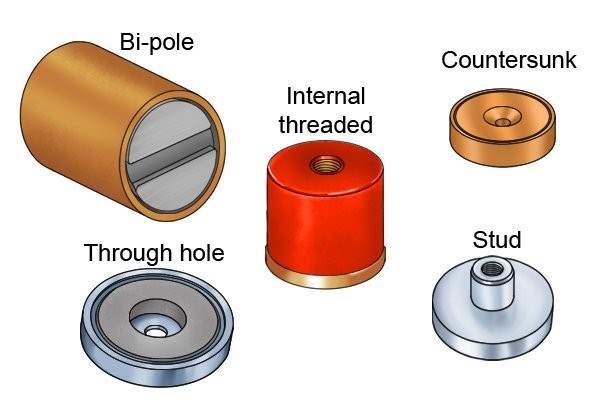 | There are five types of pot magnet: countersunk, internal threaded, through hole, bi-pole and stud. The pot magnets vary in their attachments, which allow them to be connected to different types of objects, such as supermarket signs and articulated gauging arms. |
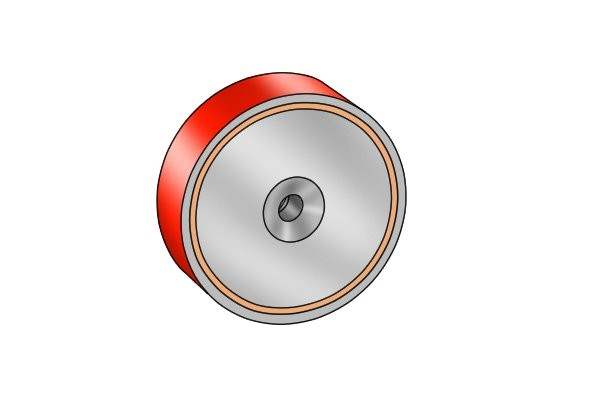 | Countersunk pot magnetsCountersunk pot magnets are a type of a pot magnet with a countersunk hole in the magnetic face. The countersunk hole has a flat top on one magnetic face which tapers at a 82 degree angle towards the top of the shell, in the shape of a cone. |
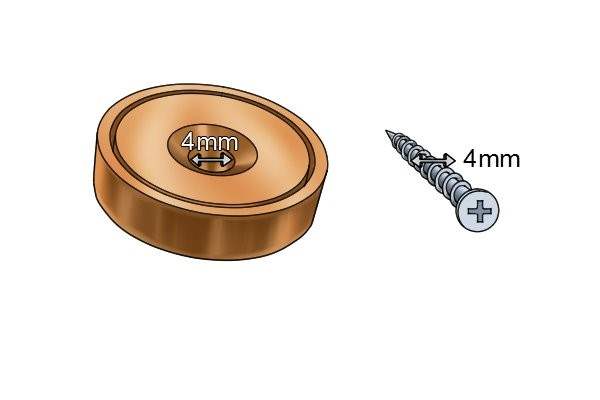 | The countersunk hole aids the magnet in its attachment to non-ferromagnetic materials with a countersunk screw.
For more information see the page: What is a countersunk pot magnet? |
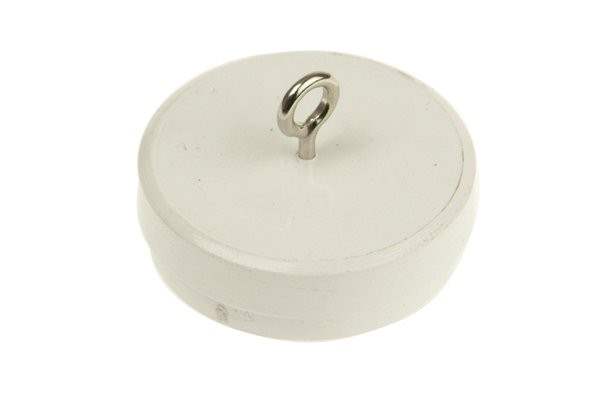 | Internal threaded pot magnetsInternal threaded pot magnets are a type of pot magnet with a threaded hole through the centre. An internal threaded hole is a cylindrical hole with continuous grooves, known as threads, in a spiral pattern around its inside wall. |
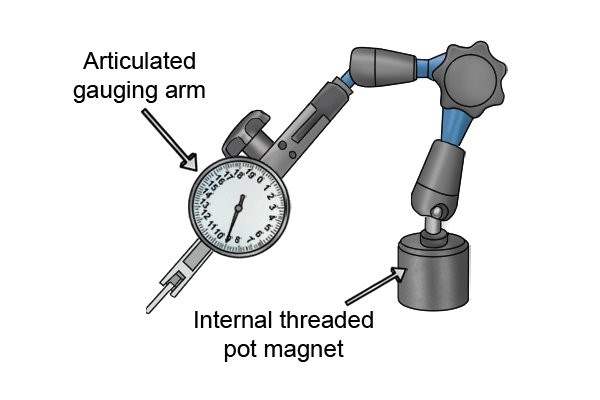 | Internal threaded pot magnets can be used as magnetic bases for gauges, for example, an articulated gauging arm.
For more information see the page: What is an internal threaded pot magnet? |
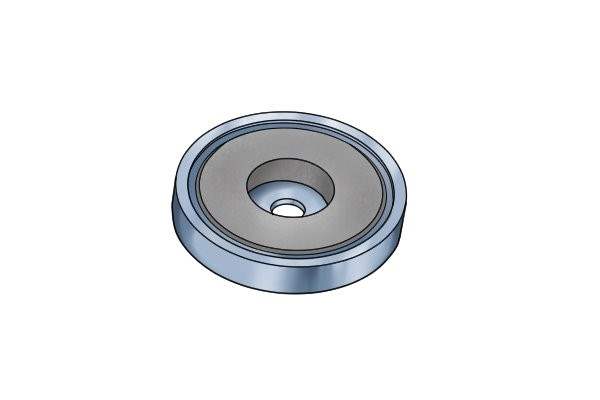 | Through hole pot magnetsThrough hole pot magnets have a hole through the centre, known as a boss. The boss allows the magnet to be attached to non-ferromagnetic items with a bolt. For more information, see the page: Neodymium Mounting Magnets with Straight Hole |
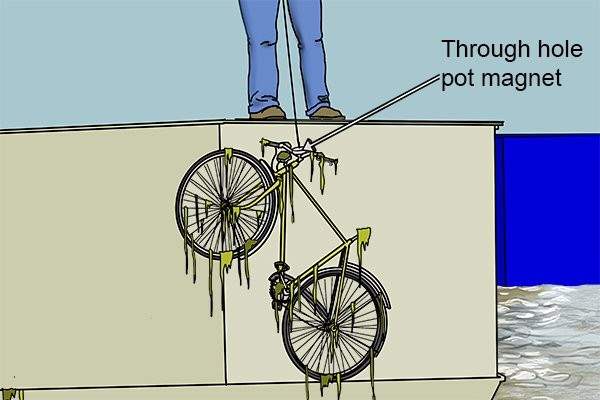 | Through hole pot magnets can be used as retrieval magnets, which are used to pick up or retrieve ferromagnetic objects from hard-to-reach places. For example, you could use a retrieval magnet to pull a bicycle from a river.
For more information, see the page: Through Hole Neodymium pot magnet |
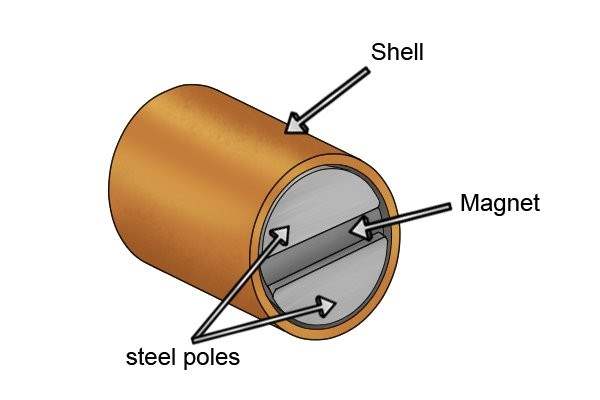 | Bi-pole pot magnetsBi-pole pot magnets have a thin magnet in the centre with two mild steel poles on either side, inside a shell. This is known as a sandwich magnet system. |
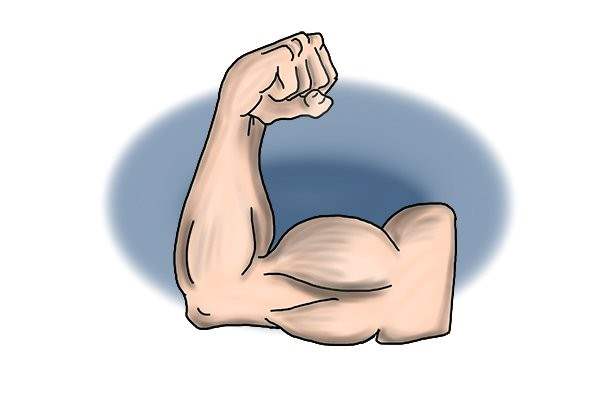 | A sandwich magnet system makes the bi-pole pot magnet thirty-two times stronger than a standard magnet, for example, a bar magnet.
|
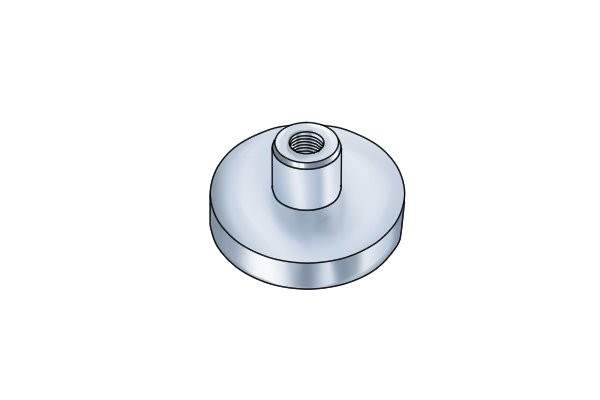 | Stud pot magnetsStud pot magnets can either be a shallow or deep, and have a stud protruding from the top of the pot magnet's case. The stud is the cylinder of stainless steel that protrudes from the surface of the magnet.
Stud pot magnets can be used to hold promotional signs from the ceilings of supermarkets.
For more information, see the page: Stud Pot Magnet |